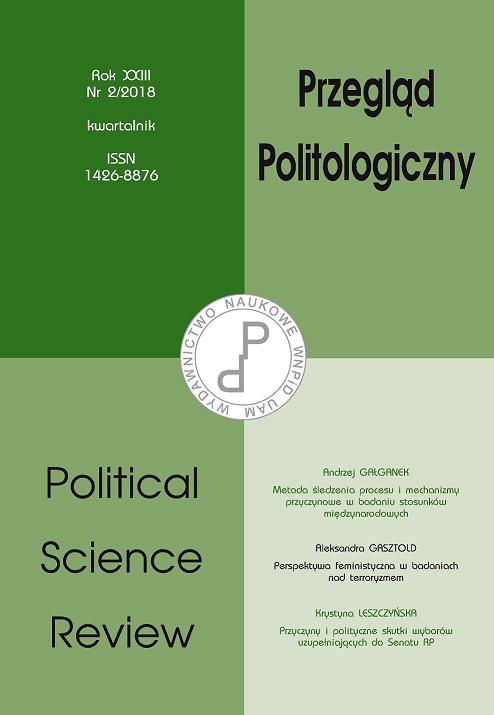Czy współpraca się opłaca? Wpływ koalicji z Niemcami na sukces Polski w procesie legislacyjnym Unii Europejskiej
Is cooperation beneficial? The impact of the coalition with Germany on Poland’s success in the European Union’s lawmaking
Author(s): Adam KirpszaSubject(s): Sociology, EU-Accession / EU-DEvelopment
Published by: Uniwersytet Adama Mickiewicza
Keywords: European Union; negotiations; EU’s lawmaking; Polish-German relations in the EU; Polish-German coalition; bargaining success
Summary/Abstract: The purpose of the article is to analyze whether building a coalition with Germany affects Poland’s success in the EU’s legislative process. Two hypotheses are tested: (1) when Polish and German preferences are homogenous, Poland’s legislative success is greater; (2) the coalition with Germany ensures Poland’s greater success in the areas of particular significance to Warsaw, that is in agriculture, energy, environment, home affairs and the single market. The above hypotheses are tested using a quantitative method of a linear regression. Regression calculations are based on the DEU II dataset. The results are as follows. First, forming a Polish-German coalition in the EU’s lawmaking is extremely tricky due to strong divergences of both countries’ preferences. Second, building a coalition with Germany is particularly beneficial for Poland, nevertheless. The analysis shows that when Poland enters an alliance with Germany, its success in the EU’s legislative process significantly increases. Third, building a coalition with Germany is very profitable for Poland in these policy areas which are crucial from the perspective of Poland’s interests, namely in agriculture, energy, home affairs and the single market. The only exception is the environment.
Journal: Przegląd Politologiczny
- Issue Year: 2018
- Issue No: 2
- Page Range: 121-138
- Page Count: 18
- Language: Polish

